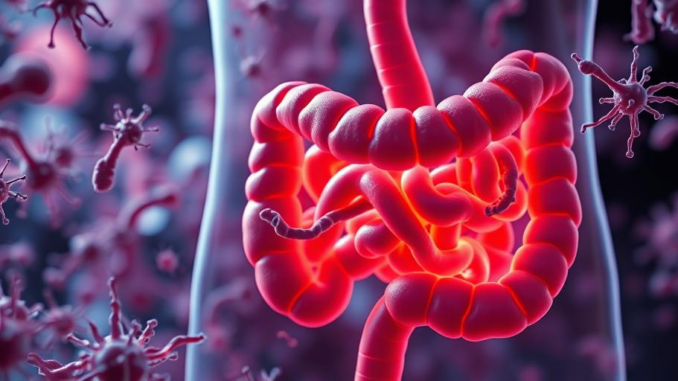
Summary
This article explores the emerging research linking sugary drinks, gut health, and diabetes risk. It discusses how specific gut bacteria may influence insulin sensitivity and how this knowledge could pave the way for new diabetes prevention and treatment strategies. The article also highlights the complex interplay between diet, gut microbes, and metabolic health.
Healthcare data growth can be overwhelming scale effortlessly with TrueNAS by Esdebe.
Main Story
Type 2 diabetes is becoming a bigger and bigger problem globally. And honestly, researchers? They’re working overtime trying to figure out all the puzzle pieces that lead to it. We know lifestyle, genes, and even our environment matter, but there’s something else getting a lot of attention: our gut microbiome. It turns out, those trillions of little guys living in our digestive system might be a key player in how sugary drinks bump up the risk of diabetes.
Sugary Drinks: A Gut Wrecking Ball?
Think about it: chugging sodas and juices all day long. It’s practically a direct hit on the delicate balance of your gut. These drinks are loaded with fructose, and some gut bacteria just go wild for it, but not in a good way. This feast leads to an overgrowth of the ‘bad’ bacteria, and the ‘good’ guys get pushed aside; this imbalance is called dysbiosis. And guess what? This whole mess can really mess with your diabetes risk.
Gut Bacteria and Insulin: A Love-Hate Relationship?
It’s fascinating, actually. Studies are finding specific types of gut bacteria that seem to either help or hurt how well your body uses insulin. I remember reading one where people with more of a certain bacteria, Coprococcus, tended to have better insulin sensitivity. On the flip side, higher levels of Flavonifractor were linked to worse insulin sensitivity. It’s as if the gut is whispering instructions to our bodies about how to handle sugar. Maybe it is.
So, How Does This Gut Imbalance Lead to Diabetes?
Well, there are a few ways. It isn’t just one thing:
-
Inflammation: When your gut is out of whack, it can become ‘leaky,’ letting bacterial stuff seep into your bloodstream. This triggers inflammation all over your body, and chronic inflammation is a big driver of insulin resistance and diabetes.
-
Short-Chain Fatty Acids (SCFAs): Good bacteria make these SCFAs, like butyrate. They’re anti-inflammatory and actually improve insulin sensitivity. But when dysbiosis takes over, SCFA production drops, making insulin resistance worse.
-
Bile Acid Metabolism: You see, gut microbes also play a role in how our bodies process bile acids, which affects glucose and insulin. Changes in bile acid profiles because of an unhealthy gut can really throw things off.
What Can We Do About It?
Now, here’s the exciting part. Knowing that our gut and sugary drinks affect diabetes risk, it opens up some cool possibilities for prevention and treatment. Researchers are looking at ways to target the gut microbiome to improve insulin sensitivity. For example:
-
Diet: Load up on fiber and prebiotics! These feed the good bacteria and help restore balance. And obviously, cutting back on sugary drinks is a must.
-
Probiotics and Prebiotics: Popping probiotics (live good bacteria) and prebiotics (the food they love) might help get your gut back on track and improve your metabolic health.
-
Fecal Microbiota Transplantation (FMT): Okay, this one’s a bit out there. FMT is where you transfer poop from a healthy person to someone with gut issues. It’s still experimental, but it’s shown promise for some conditions, and researchers are looking at it for diabetes too. It’s a strange concept, to be sure.
Looking Ahead
The link between our gut, sugary drinks, and diabetes is still relatively new, but it’s definitely exciting. As we learn more, I think we’ll see more and more targeted ways to fix gut imbalances and improve metabolic health. It’s a complex issue, no question, but it offers a lot of hope for better managing and even preventing type 2 diabetes in the future. And who wouldn’t want that?


Fecal Microbiota Transplantation, eh? So, you’re saying my future health could depend on someone else’s… contribution? Guess I’ll start being nicer to my healthy friends; you never know when you might need to borrow their, ahem, “assets.”
Haha! That’s one way to look at it! Seriously though, the research on FMT is fascinating and still emerging. It highlights how much our individual microbiomes can impact our health. Who knows, maybe personalized microbial “blends” will be the future of wellness!
Editor: MedTechNews.Uk
Thank you to our Sponsor Esdebe
So, you’re telling me my gut is basically a tiny, squabbling nation deciding my diabetes fate based on sugar imports? I guess I need to start an ‘eat your greens’ campaign to swing the vote in my favor. Forget politics; gut biomes are the real battleground.
Love the analogy! An ‘eat your greens’ campaign is a fantastic way to put it. Focusing on nourishing our gut biome can empower us to be more proactive with our health. What are some of your go-to strategies for supporting a healthy gut?
Editor: MedTechNews.Uk
Thank you to our Sponsor Esdebe
So, personalized poop transplants are on the horizon? Suddenly being a picky eater feels like a strategic health move. Maybe I should start a “gut garden” and cultivate the award-winning flora for future contributions!